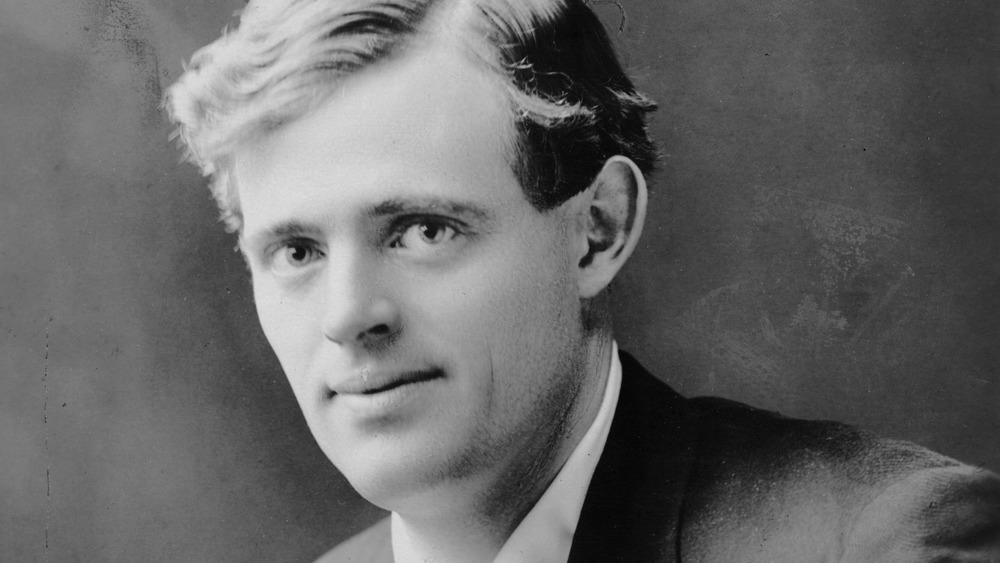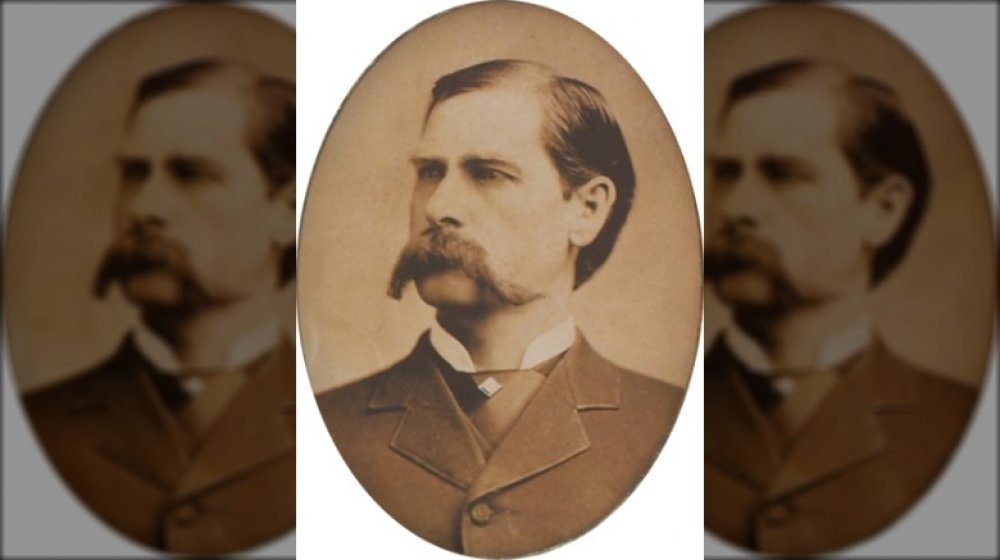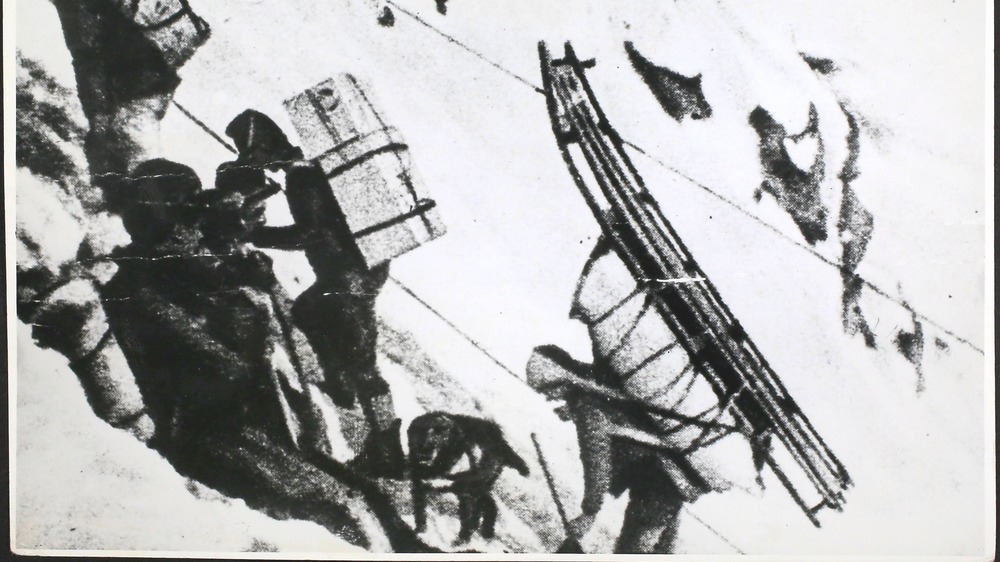The Truth About Wyatt Earp And Jack London's Friendship
Dodge City, sure. Tombstone, definitely. But Nome? Most people don't associate Wyatt Earp with the deeply frozen north, particularly Alaska. But in the late 1890s there was money to be made from the Yukon gold rush, and Wyatt, like many people in the Old West, was willing to chase it. After all, he spent far more time as a bartender and gambler than he ever did as a peace officer, and at various points in his life he and his brothers had dabbled in mining interests (including during their Tombstone days). As his life wound down he added active prospecting to the list of his professional hopes and dreams.
In 1897 Wyatt and his common-law wife, Josephine "Sadie" Marcus, made the trip north from California to Alaska. They arrived a little too late to strike it rich with a claim of their own — gold prospecting was brutally hard work, made even more torturous by the climate of the Far North, and Wyatt was already 49 years old. But Wyatt was experienced enough to know that more often, the real money in a gold or silver strike wasn't to be made from the ground; it was to be made from the miners. Men with sudden riches, wanting to celebrate. Men with broken dreams, wanting to drown their sorrows. Some, who'd staked everything in hopes of striking it oh, so very rich. Those miners included people like Jack London, young and eager and cold. He'd made his way north in hopes of striking it rich and nearly died in the process.
For Wyatt Earp, there's no place like Nome
London was still a few years away from his greatest success with the novel Call of the Wild and his short story, "To Build a Fire," which drew on his experiences of nearly dying while trying to get rich in Alaska.
As Smithsonian tells us, London was 21 when he set out from San Francisco for the Alaska gold fields. The work itself was certainly brutal, but getting there was no picnic, either. It's estimated that 100,000 men set out for the Klondike, but less than a third of them were able to power through alive. Canadian authorities required each man to bring a year's worth of food with him — about 1,000 pounds — in addition to mining equipment, which doubled the weight.
The year 1897 was auspicious: it was the year London headed for the gold fields, and so did Wyatt Earp and Josephine Marcus. Both Wyatt and Jack were following the gold. Jack hoped to locate it; Wyatt hoped to relieve people of it. Instead of prospecting, Wyatt opened the Dexter Saloon in Nome, in partnership with Charles Hoxie, according to Casey Tefertiller and Gary L. Roberts, writing in A Wyatt Earp Anthology. Roger S. Peterson, writing in the same volume, refers to the Dexter as "the biggest nightspot in the territory and a great place to gamble away your gold dust." At some point, Wyatt and Jack became at least friendly acquaintances. Wyatt owned a saloon, and London was reportedly one of his customers, per History Collection.
There was gold to be had, if you lived long enough
Possibly a very good customer, or at least frequent; London would later die of the side effects of alcoholism at the age of 40.
Both London and Earp left Alaska, Wyatt considerably wealthier than Jack. Toward the end, Wyatt and Josie settled in the Los Angeles area, where Wyatt made the acquaintance of a number of individuals in the burgeoning film industry. London visited his old Alaska saloon buddy, and the two of them decided to look up movie director Raoul Walsh — they were curious about his experiences on the border with Pancho Villa.
London and Earp showed up at the studio gate in 1916, asking for Walsh, and Walsh had them brought to his office. The conversation must have been intriguing, since the three of them ended up going out to dinner — all the more remarkable, since Wyatt was famously a man of few words. As related by True West Magazine, the three visited Al Levy's Cafe, where they enjoyed oyster cocktails and ran into silent film genius Charlie Chaplin, then the highest-paid entertainer in the world. In his autobiography, Walsh reports that Chaplin was awed by both of Walsh's dinner guests.
"You're the bloke from Arizona, aren't you?" Chaplin said to Wyatt. "Tamed the baddies, huh?" He then turned to London, by this time roundly considered one of America's greatest living authors, and said, "I know you, too. You almost made me go to Alaska and dig for gold." Fortunately for all of us, he didn't.


